
The last call
The enormous Boathouse 4 of the Portsmouth Historic Dockyard has housed many stories. Built in 1939, it met the need for rapid rearmament prior to the start of World War II. Yet since the end of the war, the Portsmouth Dockyard was marked by a steep decline in employees resulting in closures of entire workshops and dry docks. Buildings have undergone new appropriations. In the middle of the Dockyard, there was for some time the mobile phone shop, Phones 4u. In this short narrative piece, Steve Wheeler weaves together fiction with autobiographical elements to tell the story of three generations of men whose lives have unfolded on that spot, the very same yet entirely different.
The cranes mimicked the dockers and in turn, the dockers mimicked the cranes. Canvas and jute grab-bags the size of Edwardian double-breasted wardrobes played out time, like the counterbalances, cogs and pendulums in the fantastically complex inner workings of a case-less grandfather clock. In went the stevedores’ hand hooks and with the old heave-ho the cargo would be landed, stacked, carted and railed. The bonded warehouse became Boathouse 4 and Boathouse 4 became so big you could believe at first sight, on the very first day of your apprenticeship, that it was big enough to house the entire world.
In Boathouse 4 they built bastard big boats that the rest of the world would refer to as ships. Then the world decided that it didn’t want to build ships in Portsmouth Dockyard anymore. The dockyard closed and now, right there in the middle of where it all used to happen, measuring in at a little less than one-thousandth of the original volume of Boathouse 4, is Phones 4u.
There are one hundred and seventy beats per minute to the background music and the boy in the serge pea jacket, a first-year philosophy undergraduate, puffed up on Twentieth-Century avant-gardist theories, is actually going to ask the sub-A level sales boy two years his senior to cut the Dub-step in Phones 4u. This is going to be worth watching. He’s intent on mischief, he’s going to be a philosopher after all and moreover, even though he doesn’t know it yet, his great grandfather used to work hot rivets on the very spot where the three-sided sales and customer service counter corral now stands. He wants a smart phone and being smart he wants to test their claim that they can get you any ringtone in the world 4u.
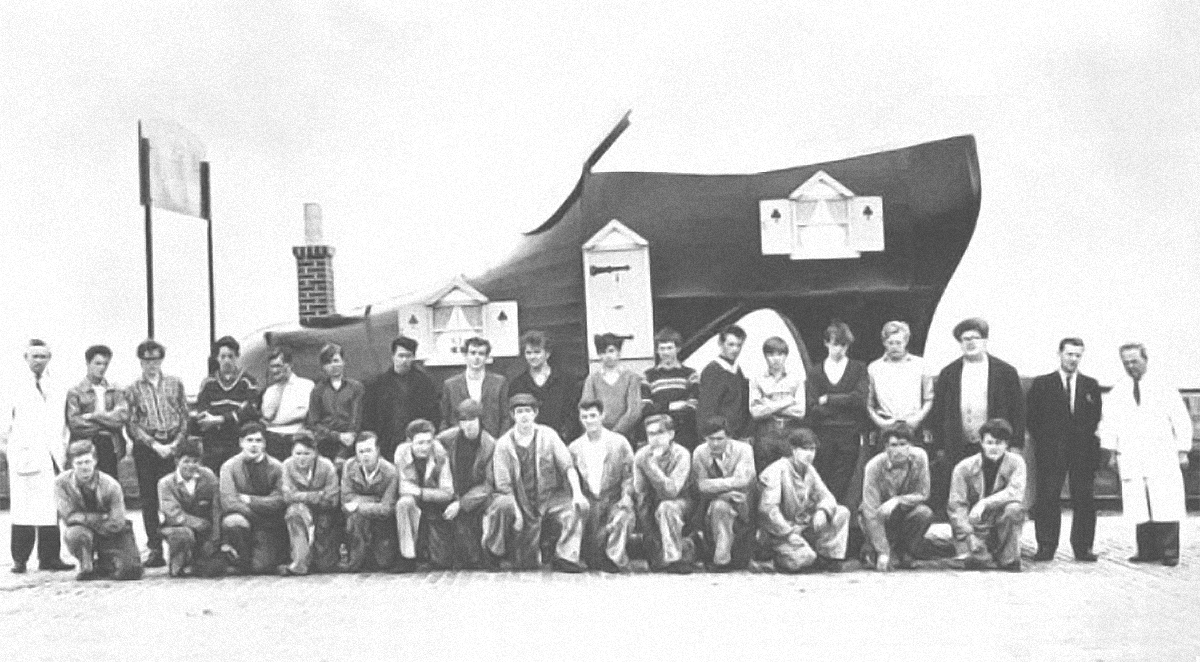
He says he wants an iPhone – he asks for 4’33’’ by John Cage – they get it for him – he questions their competence – they check out the handset – there must be something wrong with the volume settings – the philosophy student explains that it’s a piece of silence played on the piano and that in order to hear it they need to cut the Dub-step playing on their shop sound system – they cut the Dub-step – they all listen to the silence – this is the original Carnegie Hall performance – they hear a cough – “Cool” is the universal pronouncement of approval but before the knowing smiles can stretch right across their faces, the philosophy student pounces on them – he changes his mind and asks for Cage’s Concerto for Prepared Piano. Mr Cage obliges with a symphonic dockyard like cacophony for prepared piano played out on rusting iron-framed hulks strung with steel hawsers.
All the polyphonic rhythms of wood and sheet metal being crafted once more fill the air, for here stands Jack, an impossible 95 years old who can still hear it going on in his head, patiently waiting to get one of the lads to top up his pay-as-u-go mobile phone. Man and boy he served out his life right here in Boathouse 4 and he could still feel it, smell it, taste it. He saw the developers there the day the dry docks were being eyed up for underground parking, their steep stepped declines so suggestive of a future Green Zone Level Four, immediately above Yellow Zone Level Five.
My father stands at the Phones 4u end of the Great Ropehouse, looking for the bastard who vanished with his micrometer; above his head will be mounted the graphically combined sign for Customer Toilets and Emergency Exit. The lenses on his black-framed spectacles have fogged up – it is twelve degrees Celsius inside the Ropehouse and ten degrees outside. The exertion of running in his thermal overlays of three boiler suits have super-heated his head beneath the black and grey woolly hat that his wife knitted for him. I still have three woolly hats knitted for me by my mother stored in a cardboard box in the attic, their colour combinations determined by chance – by the combined unused remains of balls of wool. I should be wearing one now, what sort of pilgrim am I to not have dressed in the garb of homage?
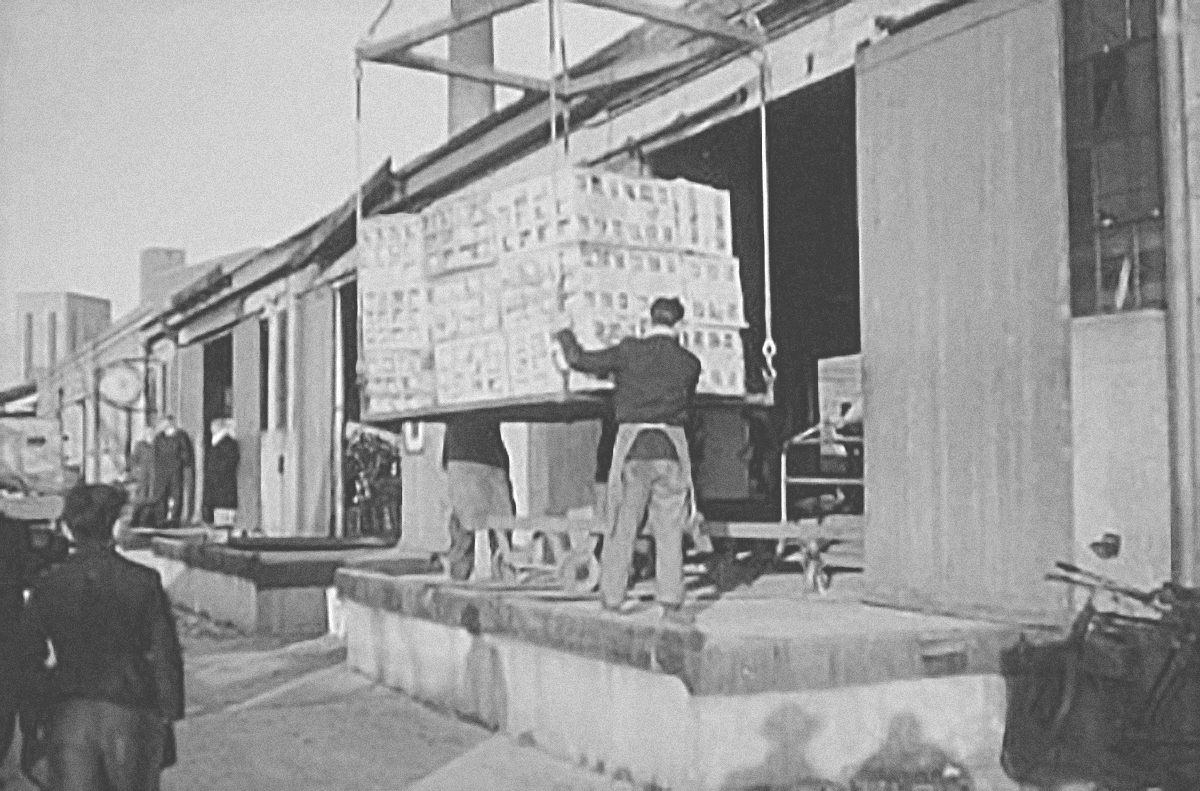
I want my father to find the micrometer – not so that he can get on with the job, but so I can see how he deals with the man or boy who took it.
He removes his specs, searches blindly in the endless perspective. It is 1,030 feet from one end to the other, long enough to house the Eiffel Tower when laid on its side, its vanishing point somewhere way beyond the harbour on the Gosport horizon. He takes a white cotton handkerchief out of his pocket and wipes the lenses, sticks them back on the bridge of his nose, which he then blows with the sound of a broken bassoon reed. Three times he blows; the handkerchief is sodden, he shoves it back into his boiler suit. He walks, a big man in steel toe capped boots with acid resistant anti-slip rubber soles. He eyes up two men. They catch his eye, turn and laugh. He approaches, pushing his glasses back up the bridge of his nose.
“All right Gordon – Union business is it?”
“Come on, let’s have it.”
“Have what?”
“My micrometer.”
“What d’you mean?”
“One of you two jokers has just run off with my micrometer.”
“Not us Gordon – what do we want with a micrometer?”
“That’s the bloody point.”
“What?”
“You ropemakers don’t need it and I don’t need the wind up.”
“I’m sorry Gordon but we haven’t got it have we Bob?”
“We certainly haven’t Dave.”
“Has anyone else just come in?” Gordon adjusted his glasses to the horizontal.
“Nope,” Bob said as he walked past Gordon towards the workbench, “no one’s been through here. Did you see anyone Dave?”
“Can’t say that I did Bob.”
“Can you give me hand with this Dave? Sorry Gordon can I just get you to move over there.”
“No problem Bob –” David stepped over to the workbench as Gordon moved aside, “what’s in it today?”
“Pie and cake.”
“Crikey, pie and cake. That’s definitely a two-man job,” Bob and David took hold of either end of Bob’s lunch box.
“On the count of three; kinetic lift – have you got your knees slightly bent?”
“Righto Bob, we don’t want to put our backs out do we?”
Bob counted – “One – two – three,” they let out a tremendous groan. “Shit, it must be her pork pie, I can’t shift it. Come on Gordon, don’t stand there like a lemon, give us a hand.”
Gordon, now cold with his own sweat, still fuming about his stolen micrometer, desperate to get the truth out of these two men, found himself grabbing hold of a handmade, aluminium lunch box that could have contained nothing more than two size nine men’s shoes.
The three of them pulled and the oak workbench juddered.
“It’s not her fruit cake is it Bob? If it is we’re in trouble. Come on Gordon put your back into it man.”
The workbench suddenly tilted on two legs, Gordon, who was in the middle felt its weight coming towards him, he threw himself forward to counterbalance it. It rocked back on all fours, slamming down of the floor.
“Phew that was a close one. I’d tell my wife that you tried to help Gordon, but if she hears that you weren’t man enough to move the lunch box she’ll only think you need feeding up and start making me bring an extra pie in for you.”
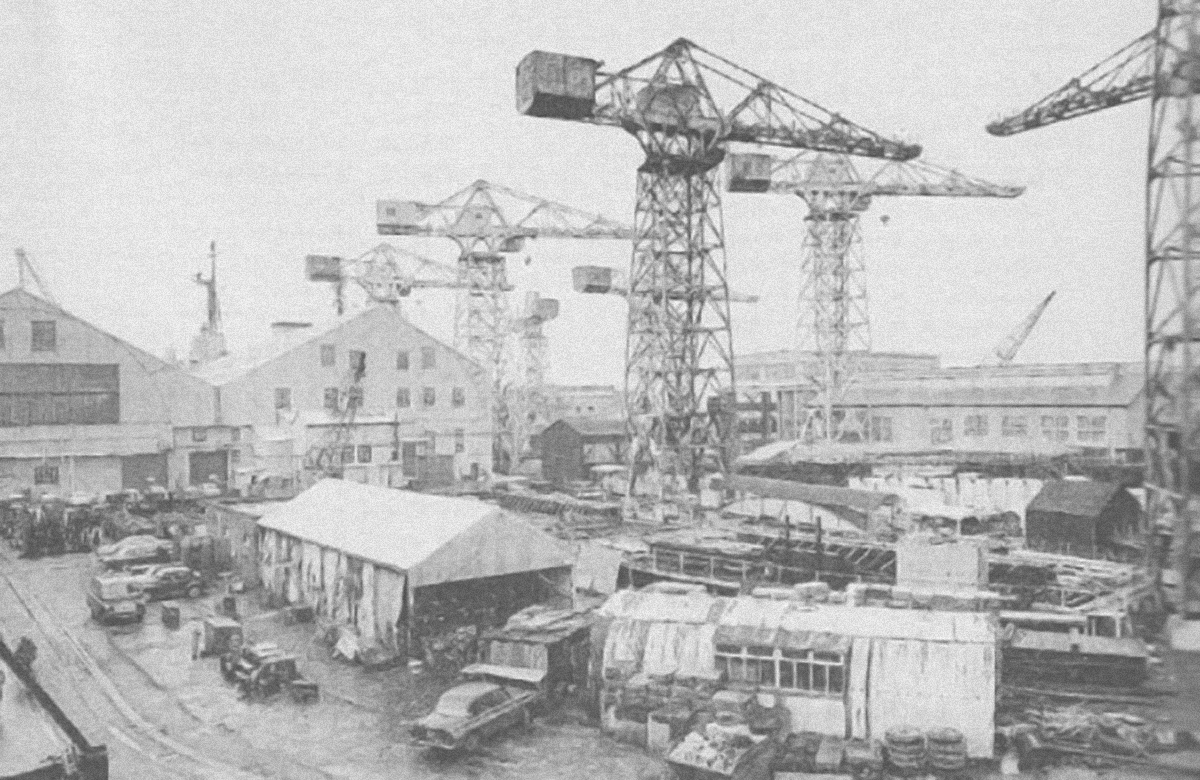
Gordon undid the hasp that secured the lid of the lunch box and opened the lid. Inside was a plastic container with a ‘Walls Family Size Vanilla Ice Cream’ sticker on the top. He lifted it out; beneath it lay the heads of four bolts anchoring the box to the workbench.
“What the bloody hell is this?” Gordon knew the joke was on him, he couldn’t believe he’d been fool enough to have joined in – his dilemma was whether he should allow himself to enjoy it or to continue to be Mr Hurt and Angry.
“Nice one Gordon,” Bob patted the boiler suits on Gordon’s shoulders.
“Yeah, nice one Gordon” Dave added, patting Gordon on his other shoulder whilst slipping the micrometer into the pocket where Gordon had stuffed his handkerchief.
“We’ll ask around and see if any of the lads know anything about your micrometer. I know how you feel, they’re thieving bastards in this place – I’ve had me lunch stolen before and that’s why I keeps it padlocked in that box on the bench.”
There was a welder’s flash, a planishing hammer beating the dents from a sheet of mild steel, a grinder finishing off a welded seam, a rivet gun popping like a slow motion automatic weapon. Gordon stood next to his bench, pulled out his handkerchief and heard the almost inaudible tink of metal hitting the concrete floor. As he raised the wet rag to his nose he looked down to see his micrometer staring back up at him. Beneath the woolly hat, his mind assembled judge and jury. The defending barrister pointed to the obvious:
“You absent-mindedly put the micrometer in your pocket and having forgotten about it, naturally leapt to the conclusion that the person who ran past you having disturbed tools on your workbench, had taken it.”
For the prosecution, the case was more complex:
“It was either Bob or David who grabbed the said micrometer as they ran past. Whilst you were unable to identify which of the two it was, you pursued the person in question and saw them enter the Rope Shed. Upon approaching Bob and Dave, you state that their behaviour was suspicious and that they engaged you in a diversionary practical joke. During the activity of attempting to lift Bob’s lunch box from his workbench, they both had ample opportunity to slip the micrometer into your pocket. The judge concluded that the case for the prosecution, whilst not without its merits, was wholly based on circumstantial evidence. The case would have to be dismissed and the costs incurred by the plaintiff would be the swallowing of pride.
The undeveloped philosopher declined the need to purchase the smartphone, despite the full attention of the entire front of house Phones 4u sales team. His self-satisfied amusement is smugly smeared across his cleanly shaven face. He turns triumphantly from the counter to find himself almost nose-to-nose with ancient Jack whose feet have inched his weak frustration forward to the point of near contact. The philosopher is shocked but can only recoil as far as the counter. He is hemmed in on either side. He has to face Jack and Jack’s myopia makes the philosopher seem further away than he actually is. Jack notices how pale and blurred at the edges this boy’s face is.
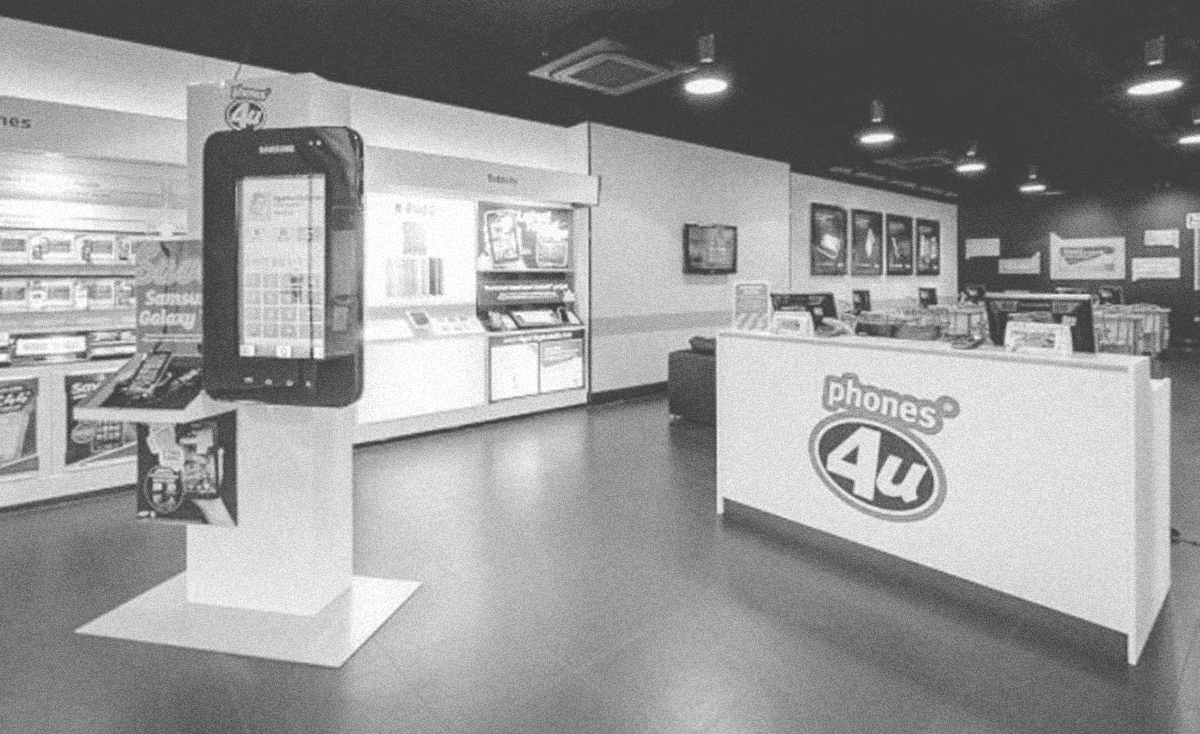
He sways slightly, feels the boy’s warm sugary breath on his nose and cheeks. The philosopher begins to dissolve before his eyes and the Warfarin in his bloodstream cannot hold enough sap to his brain. Jack flowed onto the philosopher like an old blanket slipping under its own weight from a washing line, then flopping and folding in on itself with the pull of gravity. The philosopher had his back forced over the counter, his hands splayed like Christ on the crucifix, trying to get some purchase on the plastic veneer. Jack’s head slowly slid down the boy’s smooth face, cupping his neck like a lover and coming to a temporary rest between his nipples. The philosopher involuntarily let go of the counter and clutched the old man’s head to his chest; they became one.
The heels on the philosopher’s Nike trainers began to slide outwards across the sheer surface of the laminate flooring and away from the counter; he could feel the embossed Phones 4u logo sending its semiotic message down the length of his spine as the pair of them inched towards the floor. Jack’s head now lay in the philosopher’s crotch, the buttons on the boy’s fly pressing into his forehead. All is quiet in Phones 4u. Everyone is staring at the boy with the old man in his lap. People do not lie on the floor in phone shops – this shouldn’t happen, people aren’t supposed to die when you are out shopping.
“De-de-le-da-da-de-de-le-da-da,” the phone in Jack’s dead hand is ringing. Nobody moves. I step forward, take it from his still clammy fingers and push the button with a green telephone symbol on it.
“Hello Jack it’s Gordon,” I recognise the voice.
“Is that you Dad?”
“Yes.”
“But you’re dead.”
“Yes. But I just wanted to tell you that Jack was a good man.”
“Was he?”
“I worked with him for years, right here on this very spot. He had a son who did his apprenticeship then came to work in the Rope Shed here. Dave his name was – a right piece of work. ”
“Wasn’t he the one that nicked your micrometer Dad?”
“I don’t know. I was never certain.”
“He did Dad – I saw him do it.”
“Are you sure?”
“Yes Dad, I saw him do it.”
“Thanks for telling me Son.”
“That’s okay Dad.”
Before I could ask him the question that I’d always wanted to ask him, the phone went dead.
Recent articles

Overlooking the Sicilian capital, Pizzo Sella is a natural promontory also home to hundreds of unfinished constructions – the result of a wave of illegal urban sprawl started in the late 1970s. Artist Erik Smith freely explores the enduring presence of these concrete ghosts, engaging with the fragments – materials… Read more »

Heliograph, Calotype, Talbotype, Daguerreotype: these are some of the early names that circulated prior to the word “photograph” during the early, experimental stages of its invention. This fascinating historical text from the mid-1800s lays out the early development of photography from a point in time when the technology had advanced,… Read more »
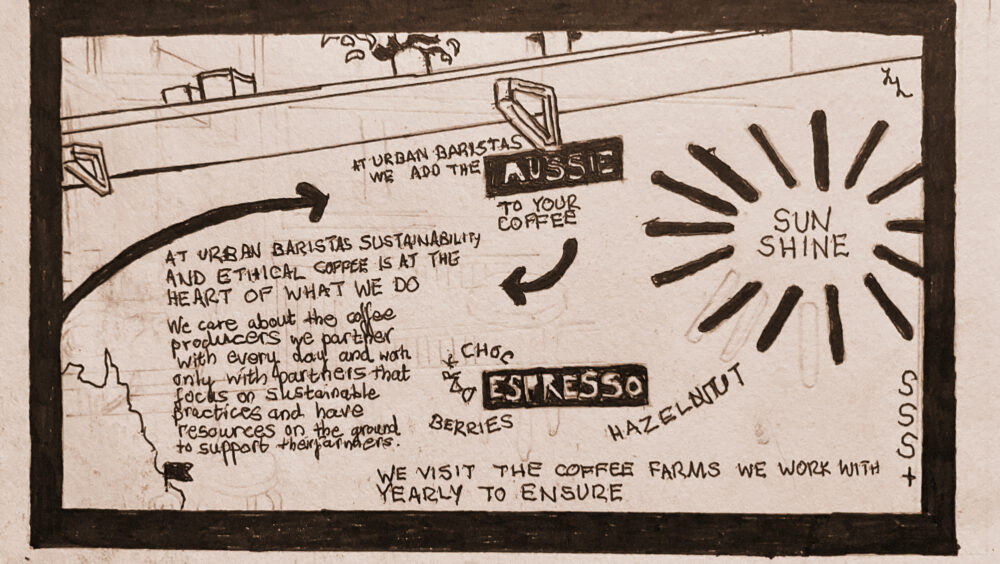
Between the areas of Spitalfields and Aldgate in east London, where Middlesex and Wentworth Streets converge to form Petticoat Lane, lies a stretch of market stalls selling clothes, street food and everyday goods. This very space became the setting for a short workshop on place-writing, held in October 2023 by… Read more »

